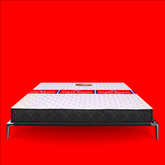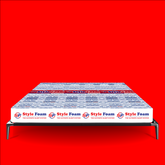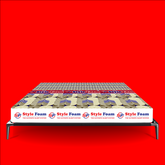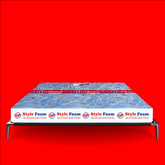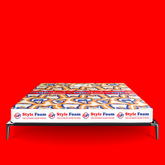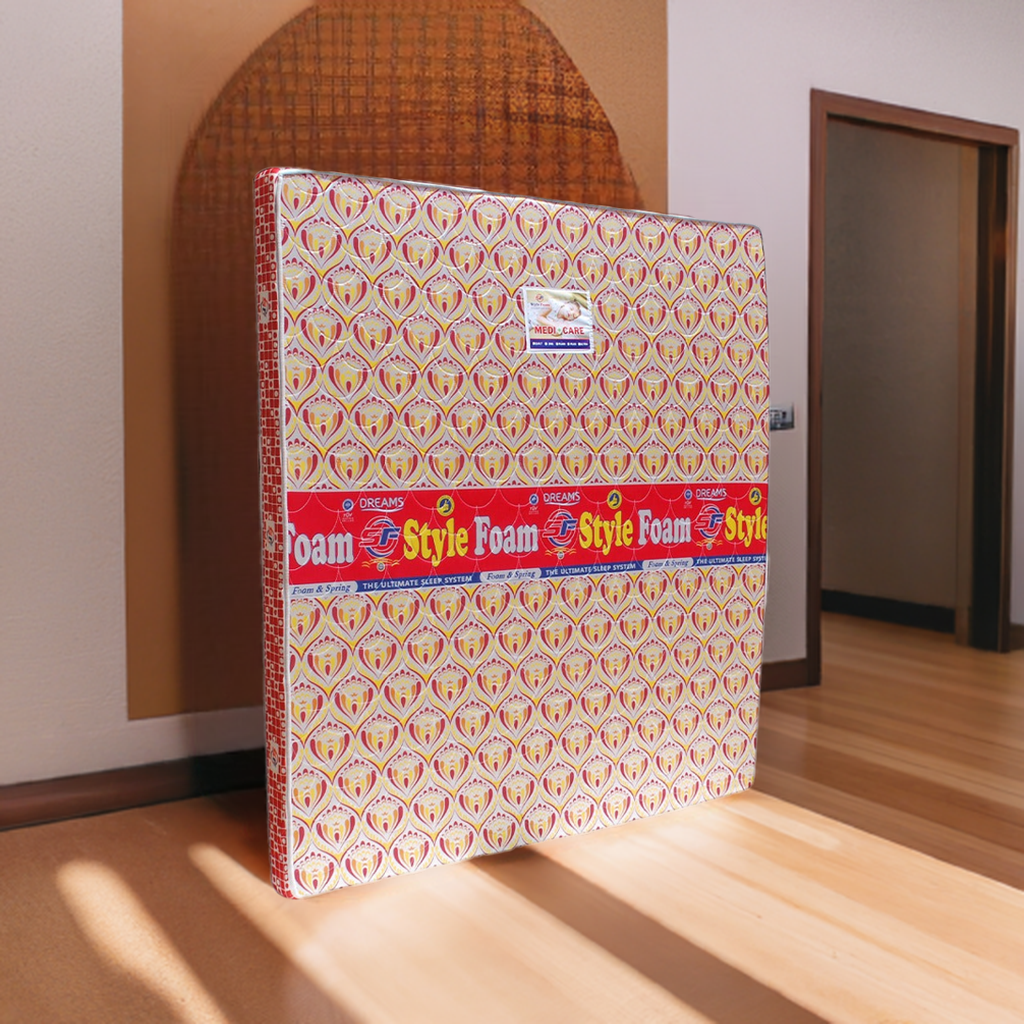A good night's sleep is essential for overall health and well-being. However, achieving this often depends on one key factor that many overlook — the quality of your mattress. If you wake up feeling tired, with back pain, or constantly tossing and turning at night, it may be time to rethink your sleeping surface. In this comprehensive guide, we’ll explore how to discover the perfect mattress that offers ultimate comfort, proper support, and the restful sleep you deserve.
Why the Right Mattress Matters
Sleep is not just about quantity; quality matters even more. A poor mattress can lead to several issues:
-
Back and joint pain: Inadequate support can strain the spine and joints.
-
Sleep disruption: An uncomfortable surface may cause frequent wake-ups.
-
Poor posture: Over time, a bad mattress can lead to long-term posture problems.
-
Fatigue and mood swings: Poor sleep affects mental clarity, mood, and daily performance.
Investing in the right mattress is investing in your health, mood, and productivity.
Key Factors to Consider When Choosing a Mattress
1. Comfort Level
Comfort is subjective, but most people prefer a mattress that is not too firm or too soft. A good rule of thumb is to look for a medium-firm mattress that contours to your body while still offering enough support to maintain alignment.
2. Support and Spinal Alignment
The best mattresses keep your spine aligned in its natural position. Supportive mattresses reduce pressure on your hips, shoulders, and lower back. Look for features like zoned support or multi-layered foam that adapts to your body shape.
3. Material Type
There are various types of mattresses, each with its own benefits:
-
Memory Foam: Excellent for pressure relief and contouring. Ideal for side sleepers and those with joint pain.
-
Latex: Durable and naturally cooling. Offers responsive support and is great for people with allergies.
-
Innerspring: Provides strong support and breathability, ideal for those who prefer a traditional bouncy feel.
-
Hybrid: Combines memory foam and innerspring coils for balanced comfort, support, and airflow.
4. Sleeping Position
Your preferred sleeping position affects the type of mattress you should choose:
-
Back Sleepers: Medium-firm mattresses are typically best, offering lumbar support.
-
Side Sleepers: Softer mattresses help cushion the shoulders and hips.
-
Stomach Sleepers: Firmer mattresses prevent the body from sinking too deeply, maintaining alignment.
5. Motion Isolation
If you share your bed with a partner, motion isolation is crucial. Memory foam and hybrid mattresses are particularly effective at absorbing motion so that one person’s movements don’t disturb the other.
6. Temperature Regulation
Overheating at night can disrupt your sleep. Mattresses with breathable materials like latex, gel-infused foam, or open-coil systems help regulate temperature and keep you cool.
Signs It’s Time to Replace Your Mattress
Even the best mattresses don’t last forever. Here are signs it may be time for a new one:
-
You wake up with aches or pains.
-
The mattress sags or has visible indentations.
-
You sleep better on a different bed (like in a hotel).
-
It's over 7–10 years old.
-
You toss and turn more than usual.
Tips for Trying and Buying the Perfect Mattress
1. Test Before You Buy
If possible, visit a showroom to test mattresses. Lie down in your usual sleeping position for at least 10–15 minutes.
2. Check Return Policies
Many brands offer sleep trials of 90 to 120 nights. Ensure the return process is easy and cost-free in case the mattress doesn't suit you.
3. Look for Warranties
A mattress warranty (usually 10 years or more) can protect you against defects and early sagging.
4. Read Reviews and Ratings
Customer reviews and expert ratings provide insight into long-term performance, comfort, and durability.
Popular Mattress Brands to Consider
While there are many great mattress brands, some consistently top the charts for comfort and support:
-
Tempur-Pedic: Known for memory foam and pressure relief.
-
Sealy Posturepedic: Offers a wide range of firmness levels and support technologies.
-
Saatva: Eco-friendly, luxury feel, and excellent support.
-
Casper: Great for motion isolation and spinal alignment.
-
Sleepwell and Kurlon (India): Popular domestic brands known for affordability and decent quality.
Maintaining Your Mattress for Long-Term Comfort
Even the best mattress needs care to stay in top shape:
-
Use a Mattress Protector: Shields against spills, stains, and allergens.
-
Rotate Regularly: Every 3–6 months to prevent uneven wear.
-
Keep It Clean: Vacuum occasionally and air it out to prevent dust mites.
-
Avoid Jumping on the Bed: Excessive pressure can damage internal structures.
Final Thoughts: Invest in Quality Sleep
Your mattress is more than just a place to sleep — it’s a foundation for a healthy life. With the right mattress, you’ll wake up feeling refreshed, pain-free, and ready to tackle the day. Take the time to understand your sleeping habits, research options, and test out different models if possible. Whether it’s memory foam, hybrid, or latex, the perfect mattress is out there, waiting to transform your nights and energize your days.
So, don’t settle for restless nights. Discover the perfect mattress tailored to your needs, and experience the true meaning of deep, restorative sleep.

